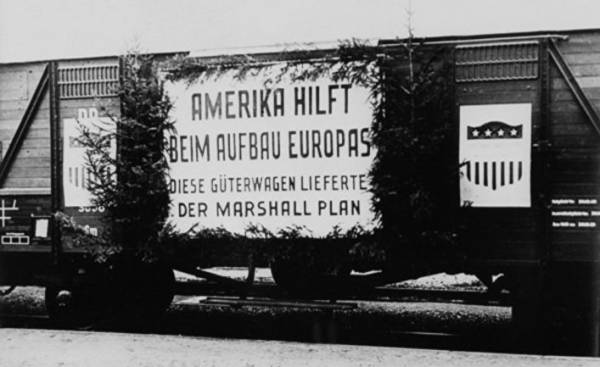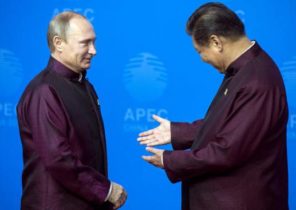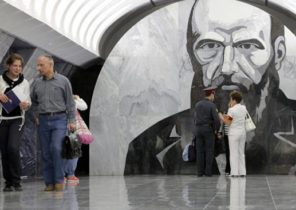
“In Moscow I went to the Minister of Czechoslovakia, and returned a lackey of Stalin,” — said the Minister of foreign Affairs Jan Masaryk after returning from talks in the Soviet capital, where Russian dictator Joseph Stalin forced to abandon their (already confirmed) participation at the conference in Paris. It was expected that there first is indicated by the so-called Marshall plan. Its “no”, the government confirmed exactly 70 years ago — on the tenth of July 1947. This effectively turned Czechoslovakia into a Soviet satellite, and marked the beginning of its economic decline and backwardness.
Many in the world took this decision with amazement. After just a few days (seventh of July) Czechoslovakia confirmed its participation in the conference, and his government unanimously approved.
However, two days later went to Moscow the delegation, headed by Prime Minister Clement Gottwald and foreign Minister Jan Masaryk. They were made personally by Stalin, who severely chastised the Czechoslovak politicians (they say he called the participation of Czechoslovakia in the Marshall plan impact on the Soviet Union) and immediately made an ultimatum: if Czechoslovakia will not give up until 16.00 on the tenth of July, this will have serious consequences for relations between their countries. The arguments about the economic needs of Stalin responded with a promise to provide economic assistance to Czechoslovakia.
Soon, Gottwald, Masaryk and everyone else realized that Stalin is not to convince, they can only reverse. Therefore, even from Moscow, they sent to Prague a telegram with instructions, and the morning of the tenth of July, began the session of the government. President Edvard beneš could not intervene to change the course of events, because by coincidence, the tenth of July he had a stroke, and he lay unconscious. However, at the meeting of the government Secretary, Ministry of foreign Affairs Vladimir Klementis said that Benes agreed with the rejection of the decision taken on the seventh of July. With regard to the protests of the Minister of agriculture and food václav Mayer, who was not present at the meeting, his words, the government has not passed.
After lengthy discussions, the government finally decided to abandon participation in a conference in Paris, which was approved on the seventh of July. The Ministers didn’t even talk about how beneficial or whether in the future to participate in such plan. They have only discussed how to explain to the public changing decisions. The people were amazed and some even talked about a second Munich agreement.
Rejecting the Marshall plan, Czechoslovakia agreed to the dictates of Moscow, and actually turned into one of the Soviet satellites. Need to remind that the Soviet Union had no right to present such an ultimatum. In the Treaty of 1943, even the Soviet Union pledged not to interfere in the internal Affairs of Czechoslovakia.
In 1948 and 1952 under the Marshall plan (the us Congress officially approved it on April third, 1948) was allocated $ 13 billion (now about $ 130 billion, that is, three trillion dollars) mainly in the form of donations or in the form of loans to buy American goods. Most of this amount was received by the UK, France and Italy.
The countries that accepted the Marshall plan, turned into the developed countries of Europe. Czechoslovakia, on the contrary, in January 1949, became a founding member of the competitive enterprises of the CMEA (Council for mutual economic assistance). This block was largely politico-economic instrument of the Soviet Union and soon began to lag behind Western countries. Economic gap between Eastern and Western countries have not been overcome until now, and, most likely, completely will never be able to get rid of.







